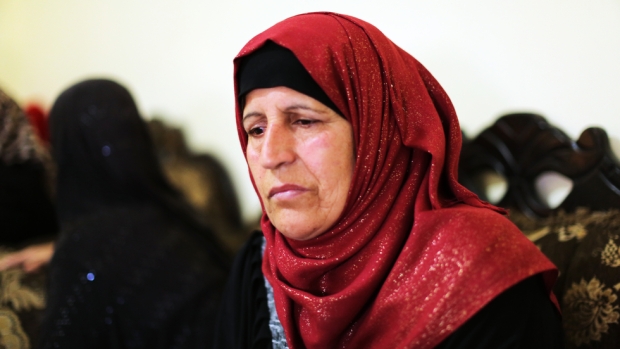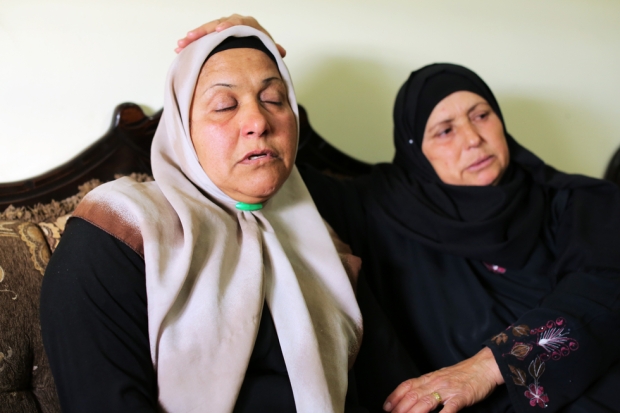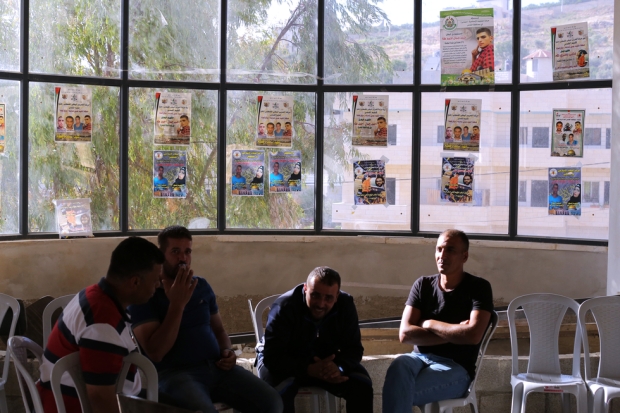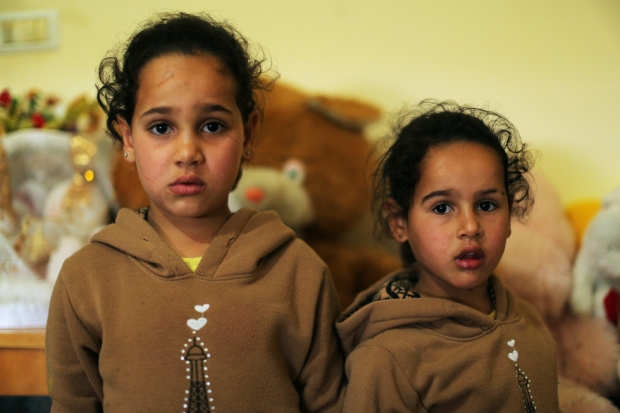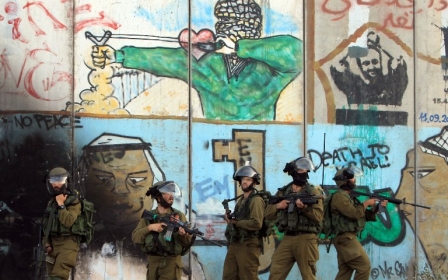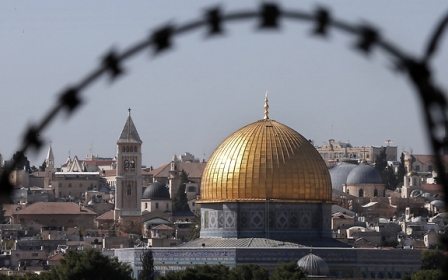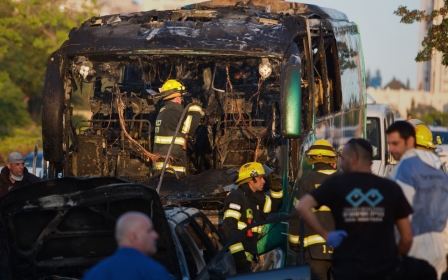The West Bank, where one wrong move can get you killed
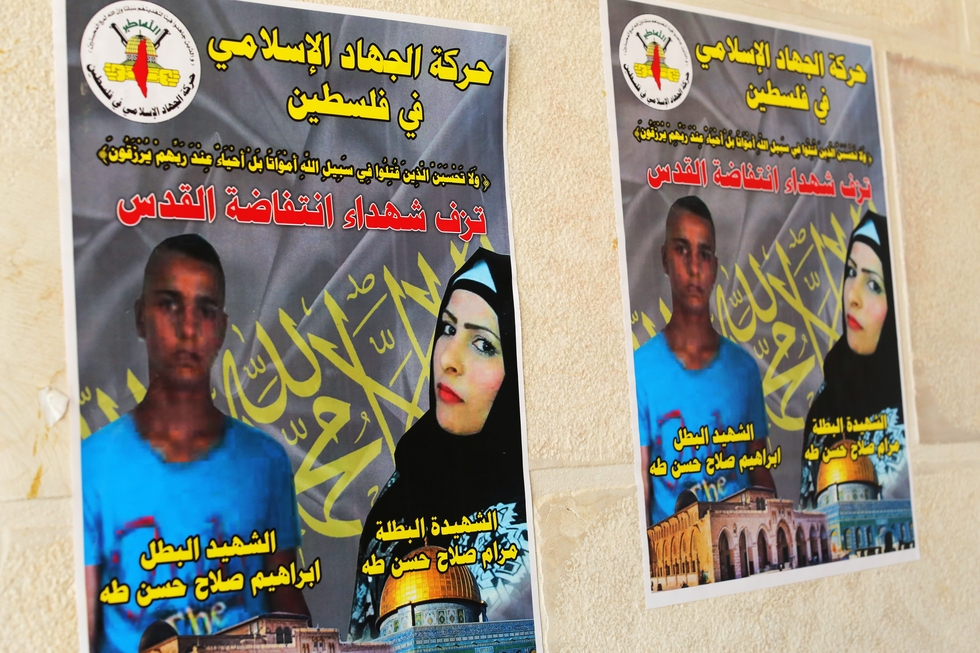
KATANA, West Bank - Two Palestinians were walking to the checkpoint at Qalandiya, but for some unknown reason turned towards the vehicle access area. Israeli guns were raised, warnings were shouted, something was thrown. Within moments the crackle of gunfire was heard and both Palestinians lay dead or dying on the ground.
Israel says 24-year-old Maram Salih Hassan Abu Ismail threw a knife at checkpoint guards, who responded with deadly force - killing her and her 15-year-old brother Ibrahim. It refers to both as "terrorists".
Israeli police posted a picture on Twitter of three knives they say were retrieved from the scene of Wednesday's attack.
But for Palestinian witnesses, that account could not be further from the truth. Abu Ismail was on her way to a medical specialist in Jerusalem, they say, and her confusion about where to pass through the checkpoint led to her death.
What she threw, Palestinian witnesses say, was not a knife. It was her medical papers.
In the volatile atmosphere of the West Bank, where hundreds of Palestinians have died since October in attempts to stab Israeli police and soldiers, walking the wrong way can prove fatal.
Hyat Taha, Abu Ismail’s aunt, said that she had spoken to several witnesses at the checkpoint and watched video footage of the attack.
According to Hyat, Abu Ismail had accidentally tried to enter the crossing’s vehicle-only area, when soldiers lifted their guns and began shouting at her to get back.
“The people at the checkpoint said Abu Ismail lifted her hands and was trying to explain to the soldiers that it was an accident. Guns were aimed at her, then she reached into her purse and pulled out a folder of papers and tossed it at the border police, right before the police opened fire,” Hyat said.
The dead siblings’ mother, Fatma, said the papers her daughter would have been holding were medical records.
According to Fatma, her daughter was at the checkpoint with her brother after being referred to a specialist in Jerusalem by doctors in Ramallah. She had been having problems with one of her legs, Fatma said.
Abu Ismail was shot, more than a dozen times according to accounts, her brother was fired on as he rushed to his sister’s aid.
Both were left on the ground for nearly an hour before their bodies were moved, witnesses said. While Fatma’s daughter died almost instantly, Ibrahim is believed to have bled to death.
But Israeli authorities have not commented on the claims of the Palestinian witnesses, and have not indicated any need for further investigation into their deaths.
The Israeli account is adamant: "Officers and border policemen at the Qalandiya checkpoint saw a male and female walking towards the passage for cars only, with the woman's hand concealed in a purse and the man's hand behind his back holding something.
"Police ordered them to stop a number of times without success.
"The female terrorist stopped a short distance from the officers, then walked the other way with the man, when she suddenly turned around to face the officers again, pulled a knife that was in her purse and threw it at an officer near her."
And what follow-up investigations have been carried out have focused on the family of the dead siblings.
Salih Abu Ismail, the siblings’ father, said Israeli forces asked him to come in for questioning just a few hours after the shooting, and held him for three hours.
“They kept asking me if my children were planning to stab soldiers, and if either of them had any problems that could explain their actions, but I just kept telling them that my daughter was sick and she was told to go to the checkpoint so she could see a doctor in Jerusalem,” he said.
Israeli forces also promised the father that they would return his children’s bodies if the family promised to “not make any problems” for Israeli forces, he said. However, he could not explain what problems they might have been referring to.
In their hometown of Katana, new posters of the slain sister and brother hang on the streets beside worn images of Abu Ismail’s cousin, Yehya Yusri Taha, a 21-year-old who was shot dead in the village last November during clashes with Israeli forces.
Local and international NGOs, as well as the UN and several member countries have questioned Israel’s handling of potential Palestinian attackers, labeling some shooting deaths of Palestinians by Israeli forces as “extrajudicial killings”.
Wasila Taha, the mother of slain Yehya, comforted the Abu Ismails during a gathering of mourners.
Taha said that while her son was cleared of any wrongdoing, having clearly been killed during clashes, she wishes an investigation would be made into the latest killing at Qalandiya checkpoint, to prove that they too had done nothing wrong.
“To us this is clearly a case of murder. Maram had just left the hospital, her 15-year-old brother was with her. What would she have been doing at that moment with a knife?” the mother asked.
“Maram has two small children. This whole stabbing story doesn’t make sense.”
Middle East Eye propose une couverture et une analyse indépendantes et incomparables du Moyen-Orient, de l’Afrique du Nord et d’autres régions du monde. Pour en savoir plus sur la reprise de ce contenu et les frais qui s’appliquent, veuillez remplir ce formulaire [en anglais]. Pour en savoir plus sur MEE, cliquez ici [en anglais].


